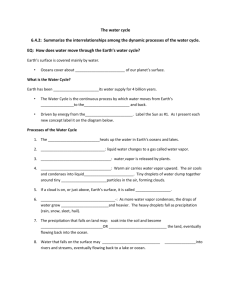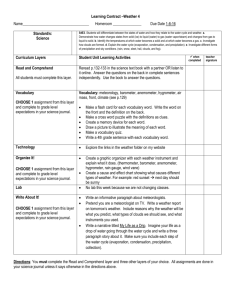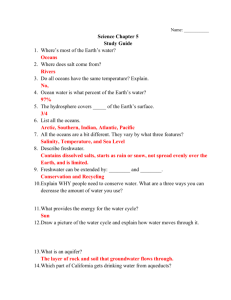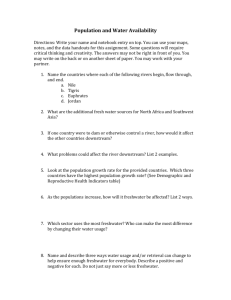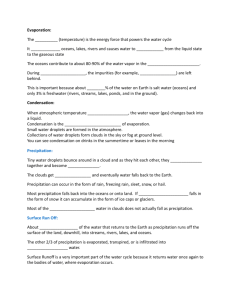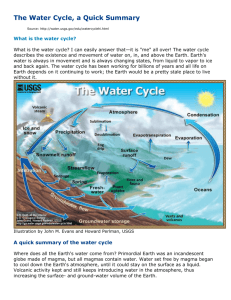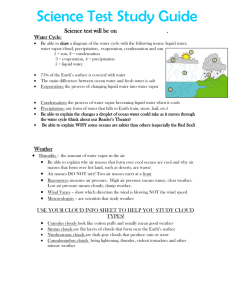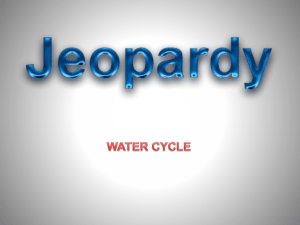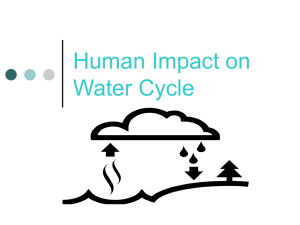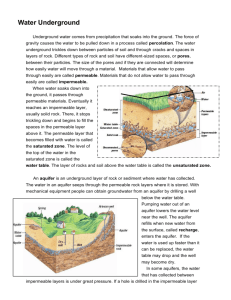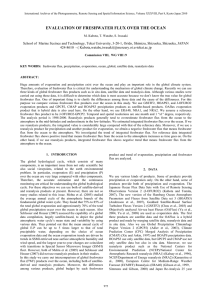Hydrosphere Quiz (2)…..Name: 1.Where is most of the freshwater on
advertisement
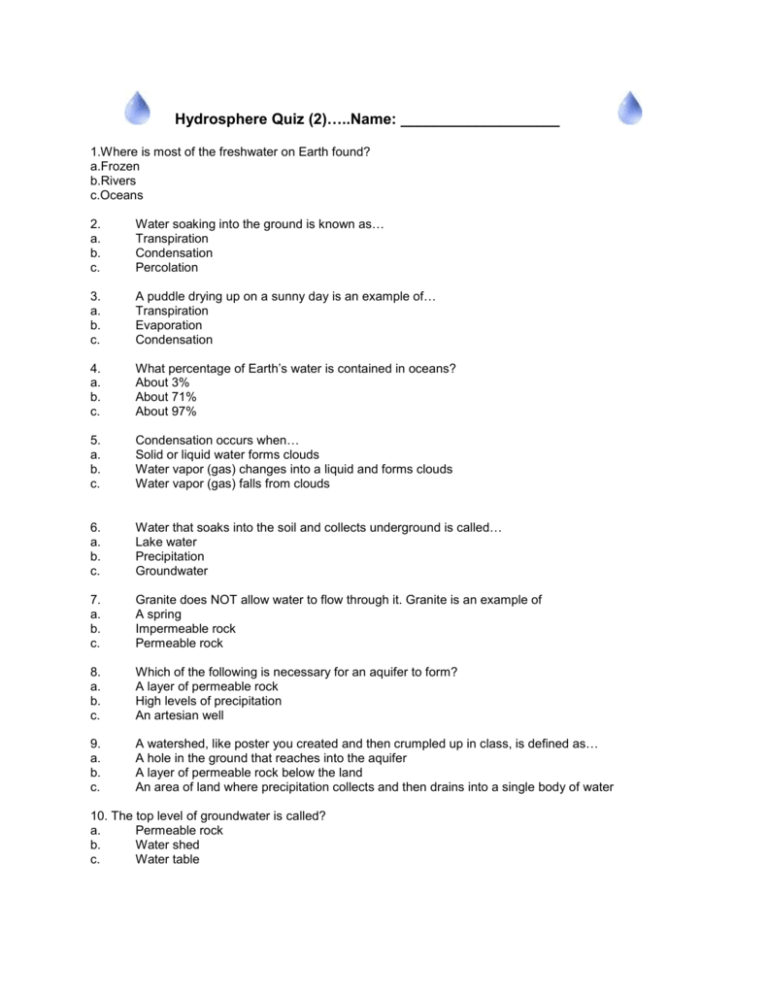
Hydrosphere Quiz (2)…..Name: ___________________ 1.Where is most of the freshwater on Earth found? a.Frozen b.Rivers c.Oceans 2. a. b. c. Water soaking into the ground is known as… Transpiration Condensation Percolation 3. a. b. c. A puddle drying up on a sunny day is an example of… Transpiration Evaporation Condensation 4. a. b. c. What percentage of Earth’s water is contained in oceans? About 3% About 71% About 97% 5. a. b. c. Condensation occurs when… Solid or liquid water forms clouds Water vapor (gas) changes into a liquid and forms clouds Water vapor (gas) falls from clouds 6. a. b. c. Water that soaks into the soil and collects underground is called… Lake water Precipitation Groundwater 7. a. b. c. Granite does NOT allow water to flow through it. Granite is an example of A spring Impermeable rock Permeable rock 8. a. b. c. Which of the following is necessary for an aquifer to form? A layer of permeable rock High levels of precipitation An artesian well 9. a. b. c. A watershed, like poster you created and then crumpled up in class, is defined as… A hole in the ground that reaches into the aquifer A layer of permeable rock below the land An area of land where precipitation collects and then drains into a single body of water 10. The top level of groundwater is called? a. Permeable rock b. Water shed c. Water table 11. a. b. c. A woman in South Africa walks four miles in order to get water for her family. An example of Water’s solubility Water availability Water sustainability 12. If people continue to waste and pollute water, there is a chance that future generations will not have access to clean and fresh water. What does this describe? a. Water’s solubility b. Water availability c. Water sustainability 13. a. b. c. Which factor most affects how water drains into local watersheds? precipitation evaporation differences in elevation 14. Which is the main reason scientists monitor the water quality of streams, lakes and other water sources? a. to protect the health of humans b. to maintain a clean environment c. to decrease oxygen levels in water 15) Which of the following is earth’s largest source of source of available drinking water? a. lakes b. oceans c. aquifers 16) Which best explains why freshwater is in short supply? a. Most freshwater is frozen in ice sheets b. Most freshwater is trapped underground c. Most freshwater is cycling in the atmosphere 17) Local water availability would be greatly reduced by which of the following a. Flooding b. Drought c. Hurricanes 18) What could be the main reason for strengthening water quality standards? a. human health issues b. natural animal issues c. industrial issues 19) Which statement BEST explains the difference between point and non-point sources of water? a. point sources can’t be traced b. non-point sources can’t be traced c. point sources have a single origin 20) What is the main effect of excess nutrients in North Carolina waters? a. Algae growth does not change. b. Algae growth is low. c. Algae growth is high.
